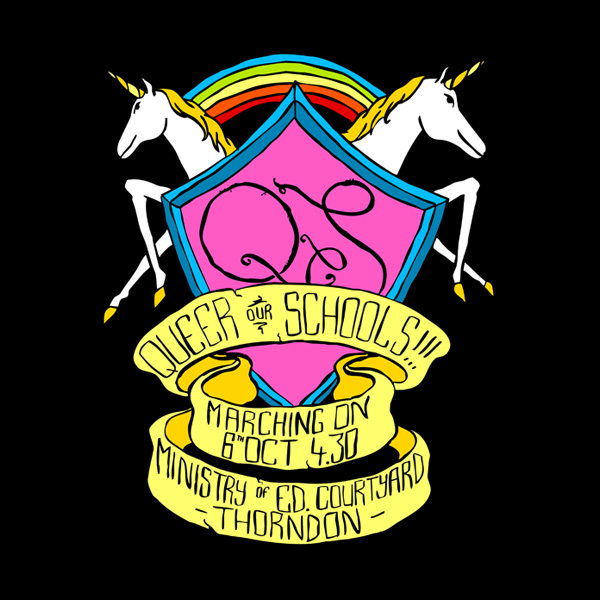Byron Clark, Workers Party Christchurch branch organiser. Originally published in the October Spark.
A common view of political parties in New Zealand’s parliament holds that ACT is the worst of the lot, followed by National, Labour as the “lesser evil” with The Greens as not-perfect but essentially good. This approach ignores the question of what power and influence these parties hold (or lack there of). There is almost insignificant support for ACT in both the general population and the ruling class. While ACT may present its plans for New Zealand as a free-market paradise for capitalists, the number of donations from corporations and wealthy individuals received by ACT pales in comparison to those received by National and Labour.
Continue reading “Election series article # 5: ACT – threat or joke?”
Election series article # 4: The Maori Party under pressure
Mike Kay, Workers Party, Auckland. Originally published in the October issue of The Spark.
 The Māori Party has not had a good year. While it may have breathed a collective sigh of relief when it parted ways with its only dissident, Hone Harawira, the euphoria must have been short-lived. It now faces intense pressure on its left flank since the formation of Mana. Seven years on from its inauguration, the Party will now struggle to continue to present itself as the authentic political voice of all Māori. In order to restore some of its radical credentials after three years of coalition with National and ACT, the Māori Party has recently been very vocal over the passage of the Policing (Storage of Youth Identifying Particulars) Amendment Bill.
The Māori Party has not had a good year. While it may have breathed a collective sigh of relief when it parted ways with its only dissident, Hone Harawira, the euphoria must have been short-lived. It now faces intense pressure on its left flank since the formation of Mana. Seven years on from its inauguration, the Party will now struggle to continue to present itself as the authentic political voice of all Māori. In order to restore some of its radical credentials after three years of coalition with National and ACT, the Māori Party has recently been very vocal over the passage of the Policing (Storage of Youth Identifying Particulars) Amendment Bill.
The Party’s police spokesperson Rahui Katene rightly described the Bill as a “travesty” that would stigmatise Māori youth. The Bill, passed under urgency, enables the Police to keep the photographs and fingerprints of young people who are arrested but discharged without conviction. It also retrospectively validates the keeping of records collected since 1 October 2008, in breach of the law at the time.
So, obviously, a law worth opposing. However, civil liberties is one of the few policy areas where the Māori Party is able to differentiate itself from its right wing coalition partners, and even then, only insofar as it impacts on Māori.
Current polls point to National being able to govern on its own this November. But if the Māori Party has a role in a future National-led government, it is likely to be along the lines of recent comments made by Tukoroirangi Morgan of Waikato Tainui. Morgan wants to form a consortium of iwi, land trusts and incorporations to buy stakes in any state-owned enterprises that may be part-privatised in the event of a second term for National. He is proposing the formation of a consortium to buy a serious stake in Mighty River Power or Genesis Energy. Continue reading “Election series article # 4: The Maori Party under pressure”
Queer Our Schools: tomorrow
Election series article # 3 : The Nature of National
This article by Jared Phillips and Josh Glue is concerned with characterising the type of National Party that is in government today. Originally published in the October issue of The Spark.
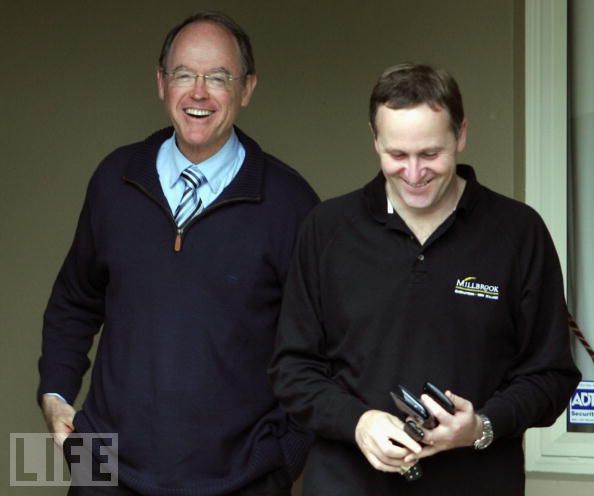 In a 2007 Agenda interview with then-new National Party leader John Key, Lisa Owen asked him about the difference in leadership style between himself and his predecessor, now-Act leader, Don Brash. Key’s reply was:
In a 2007 Agenda interview with then-new National Party leader John Key, Lisa Owen asked him about the difference in leadership style between himself and his predecessor, now-Act leader, Don Brash. Key’s reply was:
Well I think leadership’s always a very personal thing, it’s the way that you approach the issues, the image that you put off, the things that maybe you want to discuss, I mean fundamentally Don and I share the same view which is that we think New Zealand under-performs and we think that the future can be much brighter with a National government with the policies that we want to invoke, so I don’t think our fundamental aim was different, we may choose to focus on – in the very short term some different issues and you’ve possibly seen that in my approach since I’ve taken over as the leader.
This is an interesting reply as it draws out one of the key issues surrounding the nature of the National Party. Is National fundamentally a neo-liberal party, playing a strong public relations (PR) game, with the Act party playing a role as its most neo-liberal flank? Or is National a centrist party eager not to alienate its apparent support from echelons of the working class?
Continue reading “Election series article # 3 : The Nature of National”
Election series article # 2: Breaking with the Labour Party
By Ian Anderson, Workers Party member. Originally published in the October Spark.
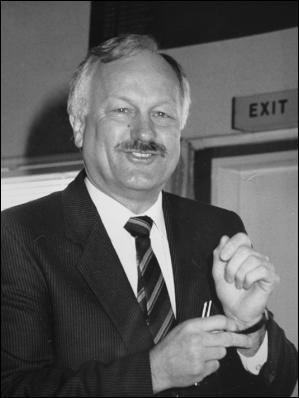 As leftists call for an end to the oppressive National Party government, we must also understand what the alternatives are. A Labour-led government remains the most immediate possibility. This leads us to consider the opportunities and threats a Labour government would pose for the left, and what other roads we might take.
As leftists call for an end to the oppressive National Party government, we must also understand what the alternatives are. A Labour-led government remains the most immediate possibility. This leads us to consider the opportunities and threats a Labour government would pose for the left, and what other roads we might take.
The Labour Party is committed to maintaining the capitalist order. While in their early days they made reference to socialism, their history since their first election is one of antagonism with the militant sections of the working class, especially at junctures where class contradictions are sharpened; the repression of watersiders in the 1930s, through to the devastating application of Rogernomics. This history is well and accurately detailed in the pamphlet The Truth About Labour. This article will aim to describe the Labour Party in its current form. Continue reading “Election series article # 2: Breaking with the Labour Party”
Election series article # 1: Mana Party pushes working class issues this election
Drawn from our experiences in Mana this article by Jared Phillips puts forward a socialist appraisal of the party so far. Originally published in the October issue of the Spark.
Formation of the Mana Party
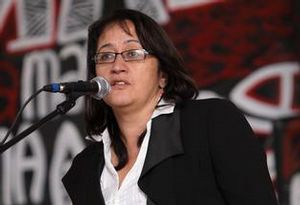 The Maori Party, after going into government with the National and Act parties fell into line and became supportive of anti-working class policies such as increasing GST (a consumer tax). As Maori Party MP for Te Tai Tokerau (the Northern-most Maori electorate) Hone Harawira opposed this and he wrote publically against the direction of the Maori Party. This is one example of how Hone stood out by not conforming to political pressure. It led to an internal dispute within the Maori Party in which Hone – in parliamentary terms – was in a minority.
The Maori Party, after going into government with the National and Act parties fell into line and became supportive of anti-working class policies such as increasing GST (a consumer tax). As Maori Party MP for Te Tai Tokerau (the Northern-most Maori electorate) Hone Harawira opposed this and he wrote publically against the direction of the Maori Party. This is one example of how Hone stood out by not conforming to political pressure. It led to an internal dispute within the Maori Party in which Hone – in parliamentary terms – was in a minority.
Essentially the Maori Party was a cross-class party, meaning it had no defined orientation to the working class and little orientation to working class or poor Maori in contrast to layers of Maori bourgeoisie. Our own socialist group was clear about this in relation to the Maori Party. However, we lacked the long-term political foresight to see that the class differences in the Maori Party would likely result in a rupture on class and social justice lines.
A further important catalyst for the formation of the Mana Party was the introduction of the Marine and Coastal (Takutai Moana) Act 2011 by the National/Act/Maori parliamentary majority. The Takutai Moana Act repealed Labour’s Foreshore and Seabed Act 2004 (F&S Act). Labour’s F&S Act had dispossessed Maori of the right to take a case regarding title over foreshore and seabed areas to the Maori Land Court, a right which had been won in a Court of Appeal case. Whilst the F&S Act brought all such areas under Crown ownership (aside from areas with private title), the Takutaimoana Act brings such areas under ‘common ownership’ meaning such areas cannot be owned. Therefore there is still no right for Maori to claim title over such areas, although there is a right to make claims for protected custody rights. Maori-led criticism of the Act is also based on the extraordinarily high threshold of proof showing customary use dating back to 1840 that is required in order to acquire protected custody under the Act. This led to a significant support and membership departure from the Maori Party to the Mana Party and to a more forceful insistence on Treaty-based rights.
Separate to the above-described process, and on a smaller scale, another process had been taking place since October 2010 involving leftists. There were some discussions amongst leftists – of both the far-left and of left-social democratic persuasion – about the idea of forming a new left party. There were media rumours about a new party being formed by Sue Bradford and Matt McCarten. The most formal of these discussions took place at a left dialogue meeting at the end of Unite Union’s first national conference in November 2011. Generally there was an apprehension about the formation of a new left party because of the low level of class struggle in New Zealand. Matt McCarten of Unite and Joe Carolan of Socialist Aotearoa were amongst the strongest in favour of proceeding with such a project.
When the contradiction between the Maori Party and Harawira came to a conclusion, many of those who had participated in the ‘new left party’ discussion, and others from active left tendencies, took an open approach to Mana and most soon decided to participate, help build, and make a contribution to shape the Mana Party. Continue reading “Election series article # 1: Mana Party pushes working class issues this election”
Pure Advantage: "When we say climate, we mean business"
[youtube http://www.youtube.com/watch?v=lM6ZigeP7OI]
Entry into the Pure Advantage “Green Growth” campaign by Climate Justice Aotearoa.
'We Are The University' – A Firsthand Perspective on the Auckland University occupation
This article is written by a Workers Party sympathiser at Auckland University
Once again the mainstream media establishment have neglected to tell
all sides of a story – in this case regarding the autonomous student
action that resulted in an occupation at the University of Auckland on
the 26th of September. I feel that my own experience goes in direct
opposition with a lot of what has been said – from not only having
been at the event, but also taking a small role in its organisation.
The occupation was about far more than the Voluntary Student
Membership (VSM) bill, it was about the increasing corporatisation of
tertiary education in this country, of which VSM is but one part of a
sustained attack on tertiary education as a whole.
Other demands were against the cutting of academic work conditions,
negatively affecting quality of research, and against the continual
rise in student fees. With this in mind, the choice to occupy the Owen
G. Glenn Building was an inspired one, as to many it is a symbol of
Auckland University’s not-so-gradual transition from an educational
institute to a business.
Continue reading “'We Are The University' – A Firsthand Perspective on the Auckland University occupation”
The Queer Avengers March On
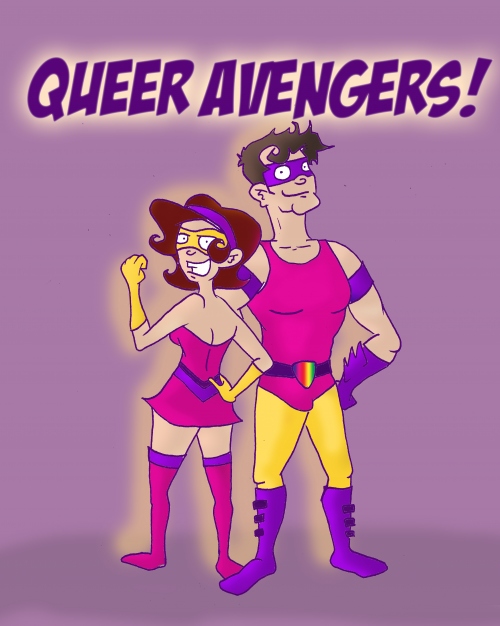 This interview with Queer Avengers spokesman and Workers Party member Jason Froch was first printed on GayNZ.
This interview with Queer Avengers spokesman and Workers Party member Jason Froch was first printed on GayNZ.
“Queer our Schools” is the first campaign to be born from Wellington-based group The Queer Avengers, which emerged from the Queer the Night march in the capital. We find out more about the group and what changes it wants in the nation’s schools.
In June a vibrant collection of people hit the headlines with a march through the Wellington streets where they made it clear they were sick of violence and abuse being hurled against gay, lesbian, trans, bisexual … (or as they prefer to simply do, drop the lists of identities and simply say “queer”) … people in the central city.
After the rousing chants and speeches the marchers have not fallen silent or just wandered back to their day to day lives, in fact a solid group has been meeting every Thursday to discuss the issues the community faces and ways to fight for change. Under the moniker The Queer Avengers they now are planning a three-pronged campaign, the first part which will focus on youth.
On 6 October a march will be held from the Ministry of Education at 45-47 Pipitea St in Thorndon, through to Midland Park on Lambton Quay, where there will be speeches and entertainment. Continue reading “The Queer Avengers March On”
Vic Students Make Some Noise
This article was originally published in the SA Anti-Capitalist Uni Special.
By Joel Cosgrove, Workers Party member and former VUWSA President.
Students at Victoria University have started to fight the cuts and redundancies that have become commonplace over the last five-seven years.
The most recent attack that started the current fightback was a change proposal put forward by the University to radically change the focus and academic content of the School of History, Philosophy, Political Science and International Relations. The past modus operandi of VUW management has been to make some sort of half-arsed pseudo-academic or financial justification of the changes management want to make. This is window-dressing at best. What it amounts to is the domination that management have over the university as a whole i.e. staff, students and the wider community. They feel that they can change the perspective and direction of the university at their whim. Previous management shut down the Russian Studies programme in the mid-90’s, using the end of the Cold War as a justification. More recent management built some big black stone steps costing over one million dollars, the Vice Chancellor responsible was fired soon afterwards, and that is the beginning and end of his grand vision of that time. So there is a long history at VUW of various dominant incarnations of senior management feeling the need to assert ‘their’ ‘vision’ and get rid of the previous ‘vision’. In effect this represents the usurpation of democratic decision-making and ownership of the university proper.
It’s this situation that has been building up over the last couple of years and exploded in anger last Wednesday. VUW management have adopted harsh tactics to repress any student organising on campus. Whether this has been trespassing key activists or threatening/intimidating students with potential punishment. It reached a crescendo with VUW security’s attempt to effectively stop the use of chalk to write political statements around the university, by washing them off with water as soon as the chalking appeared. They have done something similar to posters. Assuming that if they make it so labour intensive for students to organise and agitate, the barrier will be set too high for anything to happen. What this meant in practice, was that the level of anger and motivation just needed to rise higher before overcoming this barrier.
This threshold was reached when 56 students met in the Student Union Building in anger at the cuts going on. A protest was organised for the following fortnight. The University’s attempt at suppressed political expression was smashed by focused, constant and decentralised chalking throughout the university. By the day of the protest, VUW security had given up on trying to stop this.
There was a highly charged peaceful protest, with security hitting and attacking students. That in itself is a manifestation of the attitude by management to students. The desire has been laid down to do more than militantly witness VUW slashing and burning. Some of the key ideas coming through in Wellington, are the need to organise to fight a long-term struggle against the whims and flights of fancy of VUW Management. As well as building through practice and discussion a living, organic alternative to the authoritarian tendencies of VUW.

